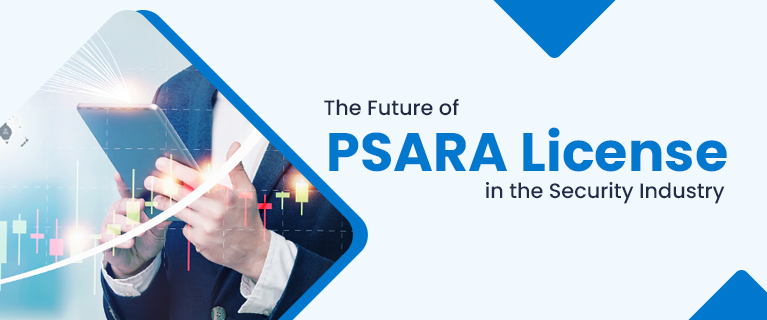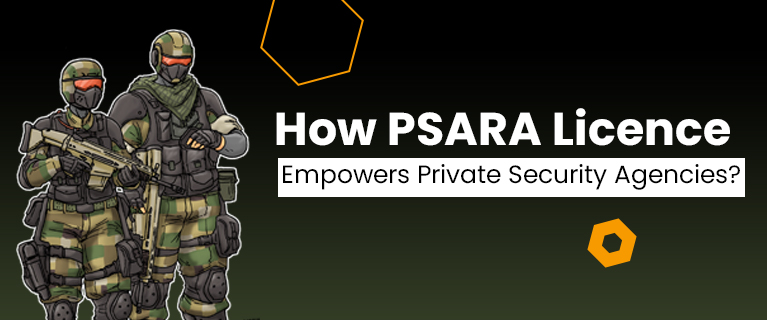The Importance of PSARA License in the Private Security Industry
The private security industry plays a vital role in safeguarding individuals, businesses, and public spaces. As the demand for security services continues to rise, it becomes crucial to regulate the functioning of private security agencies to maintain quality standards, professionalism, and accountability. In India, the Private Security Agencies Regulation Act (PSARA) provides a framework for the regulation and licensing of private security agencies. The PSARA License is a legal requirement for operating a security agency and plays a significant role in ensuring the integrity and credibility of the private security industry. In this blog, we will explore the importance of the PSARA License in the private security industry, its benefits for agencies, clients, and the general public, and the role it plays in maintaining industry standards.
Read also this -: Leveraging PSARA Licence for Business Growth and Trust1. Ensuring Quality and Professionalism:
The PSARA License sets stringent requirements for private security agencies, ensuring that only qualified and reliable entities operate in the industry. Obtaining a PSARA License involves fulfilling criteria related to infrastructure, training of security personnel, adherence to code of conduct, and compliance with statutory provisions. This emphasis on quality and professionalism elevates the standards of the private security industry, instilling confidence in clients and the general public.
2. Accountability and Trustworthiness:
The PSARA License holds private security agencies accountable for their actions and conduct. It establishes a framework for monitoring and oversight, ensuring that agencies operate within the bounds of the law and adhere to ethical practices. This accountability builds trust between clients and security agencies, providing assurance that services will be delivered with integrity, reliability, and respect for legal and ethical guidelines.
3. Protection of Human Rights:
Private security personnel have a direct impact on the safety and well-being of individuals. The PSARA License incorporates provisions to protect the human rights of security personnel and the public they serve. It sets guidelines for fair employment practices, ensuring that security personnel receive appropriate training, fair wages, and safe working conditions. By upholding human rights, the PSARA License fosters a more inclusive and responsible private security industry.
4. Enhanced Security Measures:
The PSARA License encourages security agencies to adopt and implement advanced security measures. It mandates the training of security personnel in various aspects of security, including access control, surveillance, crowd management, and emergency response. This emphasis on continuous learning and skill development equips security personnel with the knowledge and capabilities to handle diverse security challenges effectively.
5. Legal Compliance and Risk Mitigation:
Obtaining a PSARA License ensures that private security agencies comply with legal requirements and regulations. This includes adhering to labour laws, tax obligations, and other statutory provisions. By operating within the framework of the law, security agencies mitigate legal risks, safeguard their reputation, and provide clients with the assurance that their services are legitimate and compliant.
6. Client Satisfaction and Peace of Mind:
The PSARA License serves as a mark of credibility and professionalism for private security agencies. Clients can trust that licensed agencies have undergone thorough scrutiny and have met the necessary standards to operate in the industry. This instils confidence in clients, assuring them that their security needs will be addressed effectively and that their assets, personnel, and premises will be protected with utmost care.
7. Contribution to the Economy:
The private security industry plays a significant role in the economy by providing employment opportunities to a large number of individuals. The PSARA License ensures that security agencies operate as legitimate businesses, contributing to economic growth and job creation. By regulating the industry and promoting fair competition, the PSARA License creates a conducive environment for the sustainable development of the private security sector.
8. Public Safety and Crime Prevention:
Licensed private security agencies, operating under the PSARA License, actively contribute to public safety and crime prevention. By maintaining a visible presence, deterring criminal activities, and assisting law enforcement agencies, private security personnel play a crucial role in maintaining law and order. Their collaboration with public authorities helps create a safer environment for individuals and businesses.
9. Industry Standardization and Collaboration:
The PSARA License serves as a platform for industry standardisation and collaboration. By setting common criteria and guidelines, the license promotes a unified approach to security practices. Security agencies can share best practices, exchange knowledge, and collaborate to address emerging security challenges collectively. This collaboration enhances the overall effectiveness of the private security industry and its ability to respond to evolving security needs.
Read also this -: How PSARA Licence Empowers Private Security AgenciesConclusion
PSARA License plays a vital role in ensuring quality, professionalism, and accountability in the private security industry. By establishing standards, promoting ethical practices, and fostering trust between security agencies, clients, and the public, the license enhances the credibility and effectiveness of private security services. It provides a framework for regulatory oversight, protects human rights, promotes industry collaboration, and contributes to public safety. The PSARA License is an essential component in building a robust and responsible private security industry, catering to the evolving security needs of individuals, businesses, and society as a whole.




Thanks for sharing this great post Trademark Registration Online in India
ReplyDelete